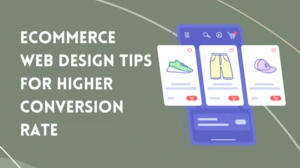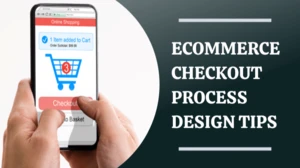6 Trends for Modernising an Online Booking System
Do you know how much is the online booking software market expected to grow in 2022 and beyond? In today’s technology-driven world, it is no surprise that the booking system industry is expanding at an increasing rate.
The online booking management software market is expected to grow by about 40% over the next five years. As more people solve their laptop and mobile device issues and the value of data grows, it is no wonder that booking management will move to CPU-dominated areas rather than filing cabinets and paper.
From a general point of view, remarkable growth can be linked to the rise of technology-based products and services in all markets.
As the online software market grows, so does the list of booking and appointment scheduling system features. QR codes and beacons are also used to collect vast amounts of data that business owners or event organisers can sell or use to plan better service design in the future with a seamless and convenient booking system.
2020 was just the beginning of a fundamentally new online product, service planning and management standard. Over the last two years, we have witnessed the revolution of the software industry and its influence on our unique way of life, work and communication.
We are past the point where we go to a physical store to make our bookings or make any purchase-related commitments over unsafe, unreliable sources such as mobile phones. People expect a modern, intuitive and hassle-free alternative to everyday tech difficulties and situations.
In 2022, there is no shortage of leading-edge software in this new era of online reservation services to help businesses reach their future goals. This article examines the top six trends in online booking systems that have brought customers virtually closer to the business and the whole online reservation process.
1. Cloud-based client management
Now more than ever, online booking systems have been embracing cloud-based CRM (or Cloud CRM) cloud-hosted software. Since it can be accessed from any device, users can access the same information simultaneously. With instant access to real-time insights, businesses can automate critical processes such as prospect eligibility, close deals, and improve customer service to increase retention for existing customers.
Unlike traditional on-premises CRM systems, which are only accessed from the office during working hours, 24/7 availability is arguably the most significant advantage of cloud-based CRM. In addition, the information stored in CRM is organised and accessible to everyone from anywhere in the world. This means that the internal sales representatives can see the same information as field reps who meet customers on the go.
Cloud-based CRM allows different teams to get the information they need, regardless of whether they are using a desktop, laptop, smartphone, or tablet, by accessing the system from anywhere in the office, at home, or on any device. From urgent sales calls on the go, sales charges, and quick searches for prospective phone numbers to emailing managers when you’re away, cloud-based CRM is a seamless 24/7 database to your central database.
Cloud CRM solutions embedded in the booking system also offer the ability to scale up or down almost instantly according to the specific needs of a business, which means attendees and customers only need to pay for the resources used at any given time.
2. Social media integration
A booking system also acts as an ecosystem where you can plug in everything else you need to run your business. This allows businesses to bind the best appointment scheduling tools and coordinate common missions while transferring data between them. Today, most online booking companies leverage social media to interact with their audience and increase traffic to their websites.
Social media is a highly engaging and cost-effective way to attract new clients to online services or programs, advance ticket sales, and increase customer loyalty to future online programs or services. Social networks provide an ideal platform for reaching different target groups and building customer networks.
In response, many online booking engines today integrate custom booking engines with major social media platforms such as Facebook, Instagram, Twitter, and LinkedIn. This allows customers to share their booking details on social media pages, increase brand awareness, and potentially generate new bookings.
Of course, businesses may not always see the immediate returns of investments or conversions. However, social media is not just about making an immediate sale but also about simply interacting with customers online and boosting brand awareness more than any other platform or network.
With social media integration, online booking systems and markets now identify the demographics they want to reach, determine the best channels to reach potential participants, and where many B2Bs come from.
3. Friction-less online booking flow
In today’s fast-paced world, users tend to avoid products that slow them down. When apps and websites struggle to reach their goals, they can quickly get frustrated. Such products will soon be abandoned and replaced with more user-friendly alternatives. Users often try to avoid the aspect of the user interface that prevents them from achieving their goals. For this reason, modern online booking systems strive to avoid interaction conflicts by creating an intuitive and consistent interface.
Customers are always looking for a streamlined booking process. Therefore, designing an organised self-service portal for a modern online booking system is important. Merchants using online booking systems focus on providing their customers with an easy-to-manage self-service system. This can provide an excellent booking experience for the customer.
Convenient booking is the primary goal of any online booking service. However, if users have to spend too long filling in numerous form fields or adding too much information in one go, they are bound to get impatient and find errors in the system. For example, the lack of feedback from the system is a strong example of interaction friction.
Online booking systems are now taking additional measures to design interactive elements for seamless online reservation flows. This depends entirely on when the customer interacts with them. Furthermore, they are making sure that changes are happening instantly and seamlessly, according to the users’ actions and responses.
4. Increased personalisation
Website personalisation creates a unique, user-specific website experience for each visitor’s property. Modern Online Booking Systems now provide many automated and straightforward features that help build an impression that each customer individually identifies. You do not have to pay for online booking by adding a reservation widget to various online contacts, including Facebook, Newsletter, and QR Code.
These websites now also allow customers or attendees to easily customise booking forms to enable the user to specify their brand, colour, style preferences, and even their preferred collaborators.
When a reservation is made, automatic confirmation and reminders keep the communication channel with the customer open. This provides essential advance booking information and reduces no-shows, allowing customers to reschedule bookings at their convenience.
Some online booking platforms also allow customers to book a range of appointment types, giving them more choices and freedom to interact with the business. For example, some may choose to book a click-and-collect to avoid heading in-store, while others may opt for personalised staff consultation.
One of the benefits of online reservation system personalisation is that clients can efficiently classify customers into a personalised goal-orientated system with a business-ready interface. For example, a CTA can encourage visitors to communicate the industry in which they work, the size of the company, and other important information. You can segment your audience into different versions of your site based on your requirements.
5. Online payment options
Online transactions are more popular and secure than ever, thanks to advances in digital payment technology, demographic changes, and the evolution of the cybersecurity environment. However, a high-profile security breach at a major retailer has revealed that offline transactions are vulnerable to attacks.
As a result, one of the most critical factors in running an online booking system is to make sure that you provide customers with fast and easy payment options- providing a secure, fast and efficient online payment system is highly essential. So nowadays, most online booking platforms have a variety of payment methods for their customers.
As services such as PayPal, Square, and Apple Pay grow in popularity, customers can now check out on various websites without spending time adding all payment and address information for each purchase. Instead, they only need to sign in to the account they use regularly, and in many cases, customers do not even need to sign in if their device remembers it.
This provides a more seamless and convenient experience, especially on mobile, where online purchases are on the rise. The more visitors expect this kind of convenience, the less likely they will run a website that requires more work.
Moreover, many online booking platforms go one step further and integrate biometrics for the most secure online payments. With rapid development in 2022, online booking systems incorporate accuracy, efficiency, and security in a single package through biometric authentication.
The payment verification methods now include fingerprint scanners, face recognition, iris recognition and more. As the issue of identity theft and fraud increases, these modernised payment methods are becoming reliable and secure options, contributing to customer retention and trust building.
6. UI Designed for shorter attention spans
Businesses know that websites and software need something to stimulate them to compete with distractions and information overload. Therefore, the static web design is not actually as cutting-edge as you may think.
Having stimulating and interactive features in web design is a great way to attract viewers, mainly because our eyes are automatically drawn to seamless movements and ease of navigation.
Today’s online customers and users expect digital products or services to meet their needs preemptively. This means everything from displaying relevant information in situations where the user is located or online to proactively informing the user of important information based on preferences and observed behaviour.
The attitude is that the product should know the customer and meet our needs without much training and effort. Therefore, it has become imperative for online booking software to attract customers to products or marketing items as soon as possible and to acquire leads to create a business.
Booking systems are now also going to extra lengths to provide an effortless user experience that requires intense user research. So as a part of the online booking modernisation trend, booking systems are now providing customers with contextual experiences that present them with critical actions, information and usable insights on the users while offering engagement in the process.
Last but not the least
The evolution of technology over the last decade has changed the position of customers, consumers, and buyers from B2B or B2C. Today’s customers have higher expectations than ever before and want to increase engagement to unlock personal and organisational value from subscribing to a program or booking a service.
In other words, online booking industries are under immense pressure as the global economy influences businesses’ and marketers’ corporate budgets. They need to demonstrate value, and their return on investment has never been a greater necessity.
Technological advances have moulded and changed the way we communicate to the ease of a conversation between individuals and crowds online. As technology evolves, so does the way we interact with each other. These new technologies must be adopted to provide customers with an enhanced experience, and their potential must be exploited.
In addition, businesses can deliver targeted messages to generate excitement and facilitate engagement by understanding the audience before launching these leading-edge booking services.



![How to Start an Ecommerce Business in Australia [2023 Guide]](/template/5731a701/images/resource-blog-right-img1.png)




